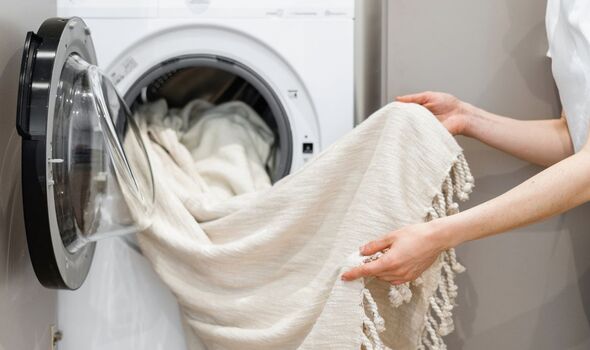
5 WAYS TO ‘SAVE MONEY' WHEN DOING LAUNDRY INCLUDING HOURS TO ‘AVOID' USING WASHING MACHINE
1. Avoid washing at peak times
Sarah Dempsey, cleaning expert at MyJobQuote.co.uk, said: "There are certain times of the day when it is cheaper to use the washing machine.
"However, this will depend on your energy tariff. Using washing machines at peak times can result in them being more expensive to run.
"Depending on your particular energy tariff, the demand for electricity at certain times can impact the price that you pay on your energy bill.
"This means that the time you choose to use your washing machine can affect how much you pay."
When washing clothing, it is best to "avoid" doing so between the hours of around 4pm to 7pm, as these hours are then electricity is the highest in demand.
READ MORE: 'Popular natural cleaner' could 'damage' wooden floors, warns cleaning expert
This means these hours tend to be when electricity costs the most, but this will vary, so make sure to double check your tariff.
The expert added: "Energy prices tend to be the lowest between the hours of 10pm and 5am. With this in mind, it's best to try to time your laundry cycles between these hours if you want to save money."
2. Cooler washes
As well as the times of day to do laundry, washing clothing in a cooler temperature can save a significant amount of energy.
This will result in lower costs, according to the expert. Sarah said: "Around 90 percent of the energy that is associated with running a washing machine is down to heating the water.
"So, the cooler you can wash your clothes at, the more money you will save. It is recommended that you wash your clothes at 30C to save money but also get a good quality wash of the clothes."
Make sure to check the label of the clothing item to see what temperature it washes best at before putting it in the machine.
3. Check how much detergent you are using
With detergent and fabric softener prices on the rise, using too much of them could waste money and ruin clothing.
The expert explained: "It is recommended that you use around 110ml of washing powder for one single load of washing.
"While you can use slightly less than this if you want to save some money, using too little detergent leaves you running the risk that your clothes may not be completely clean when they come out of the washing machine.
"If you use too much laundry detergent, the water will struggle to rinse out all of the detergent from your clothes." This can lead to a residue building up on your clothing, towels or bedding which may result in stiff garments.
4. Clean your machine and tumble dryer filter
Cleaning the washing machine regularly can help to keep limescale and mould to a minimum, meaning the appliance can work effectively.
If using a tumble dryer, make sure to clean the dryer filter after every use to reduce energy costs and avoid the risk of a fire.
Sarah continued: "This is made up of fibre particles which shed from the clothes after each drying cycle. If these fibres start to build up on the filter, they can cause a clog which means that your dryer will not be working as efficiently as it could and it will also increase the length of time that it takes to dry your clothes.
"It's easy to clean the filter with a damp cloth or you can wash the filter under a warm tap. Just make sure it is completely dry before you put it back into the dryer. Cleaning the filter is also important as it reduces the risks of fire."
5. Do full loads of washing
Whenever doing a wash load, make sure there are enough clothes to avoid setting the machine off half-empty.
Instead, you want to wait until you have a full wash load before putting the washing machine on. This will help to ensure that you're getting the most out of your money with every wash."
2023-05-19T13:57:23Z dg43tfdfdgfd